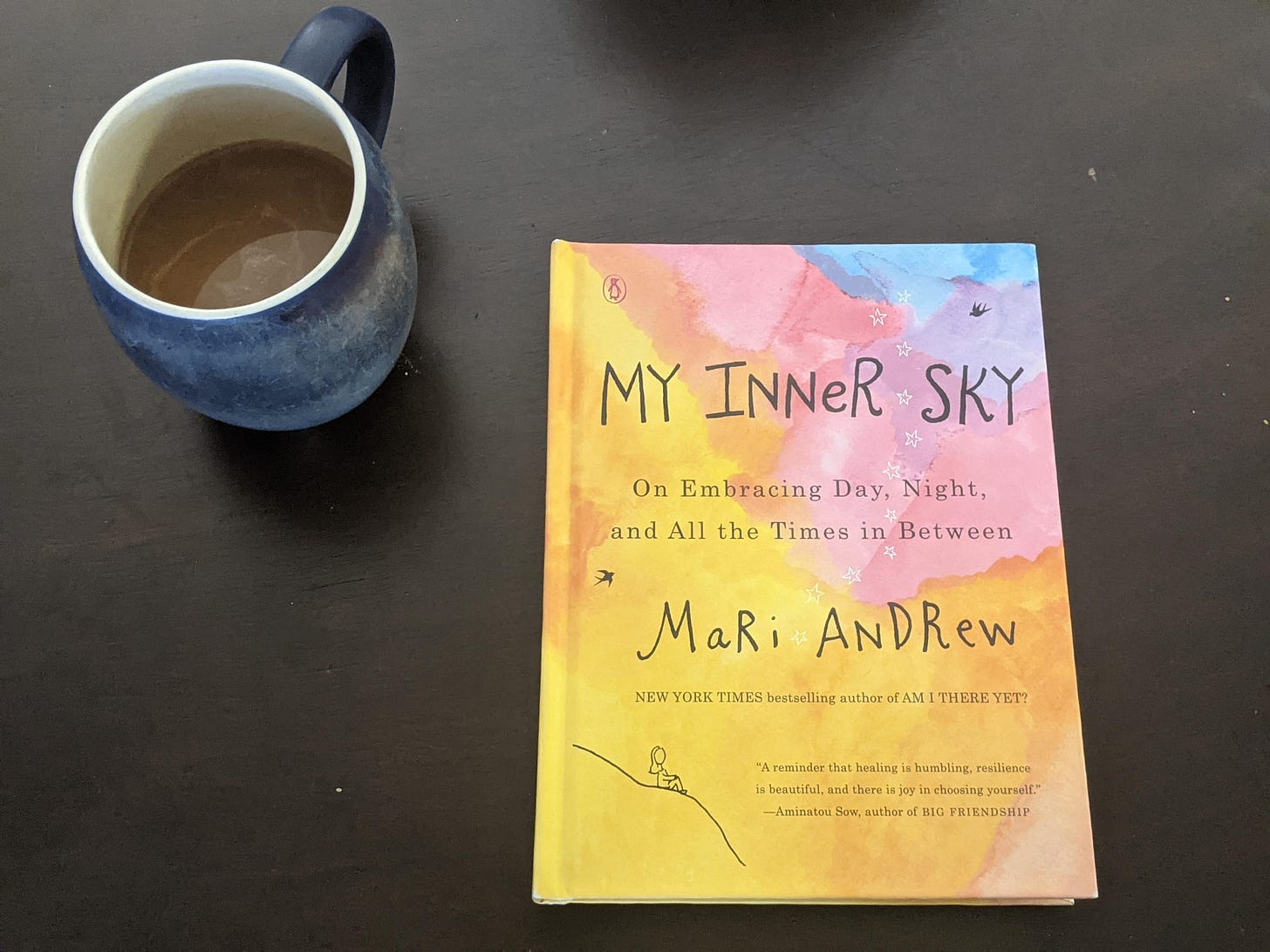The June 4 Round-Up, Fine-Line Edition
Stephanie explores the contradictions of growing up in the American South and Juliet chats with author and illustrator, Mari Andrew.
Dear Readers,
With the more democratized TV streaming models and more shows out than in previous eras, there are simply more famous people to go around. This probably explains why every animated movie is voiced by dozens of stars, instead of reliable voice actors. My three-year-old doesn’t care at all that Academy Award winner Sam Rockwell voices Hickory the Troll in the same movie where Ozzy Osborne is King Thrash, but I sure do.
Disney continues to walk that thin line between misunderstood anti-hero to inexcusable villain who wants to skin puppies and wear their fur as a coat with Cruella.
Speaking of fine lines, a perennial satirical piece about consequences for your words and actions versus having your digital past weaponized against you and your life.
Personally I think we should name all the variants after Marvel movies or Pokemons. Something to get the kids excited about!
Finally, this weekend is the 77th year anniversary of D-day. Here’s a hard read that’s so worth it about the “epic human tragedy” that occurred on those beaches.
As always, thanks for reading The Wheelhouse Review! If clever writing and interesting essays are in your—or a friend’s—wheelhouse, consider subscribing and sharing.
This week we had an essay from Stephanie Phillips on racism and reconciliation and Juliet had a conversation with author and illustrator, Mari Andrew.
Life Hacks for the Displaced, Volume 3: On Racism and Reconciliation

I remember the smell of chicken frying on Thursdays. Of walking into my grandparents’ house through the carport door, into the entryway with the door leading to the patio and backyard on one side, and a bookcase on the other. I remember the biographies of Robert E. Lee and Billy Graham, of the multiple copies of the Bible on those shelves. I remember the smell of my grandmother’s cold cream and lotion permeating her hugs, of her admonition to “go say hey” to the housekeeper, whose fried chicken sat on a plate in the kitchen while she ironed clothes in the front bedroom. She greeted our perfunctory hellos with the smell of starch and exclamations: How were we girls doing?! Thank you for saying hello to her!
My childhood in the American South is one of contradictions. Of the Black housekeeper with a separate, spartan bathroom off the laundry room; of the Black gardener who never crossed the threshold. His son would be the one to drive my grandparents ninety miles and back to the specialty clinic where my grandfather battled the lung disease that would ultimately kill him. The housekeeper would sit with the family at his funeral, and would speak to my grandmother on the phone regularly for years after without ever having used the same bathrooms the rest of us did.
I grew up taking field trips to the Civil Rights Monument one week and the First White House of the Confederacy another. I went to a school whose population was formed by mandated integration, but my Black first-grade best friend never came over to play. Eventually, we lost touch even as we sat in the same classes.
Living Your "Lifiest-Life" Now
A Conversation with Author and Illustrator Mari Andrew
Recently, New York Times bestselling author Mari Andrew spoke with me about My Inner Sky: On Embracing Day, Night, and All the Times in Between, her latest book of essays and illustrations. It is a powerful and deep meditation on waiting, longing, suffering, grief, and ultimately, healing.
Before Mari launched @bymariandrew and started writing books, she was a contributing writer to the OG The Wheelhouse Review. It was a huge pleasure to reconnect with one of our favorite writers and humans. This interview has been edited for length and clarity.
Juliet Vedral: So, where to start? Tell me about your book and where this came from? I mean, obviously, it came from deep pain and healing. Where did the sky metaphor come from?
Mari Andrew: When I started writing it I was in the middle of recovery from this really traumatic, strange illness, that now I have a lot more perspective on, but at the time it was just like, “what on Earth is happening?” It was so life-changing, and the recovery part was really, really hard because I didn't know how to speak about it, and I didn't know how to move through it, and no one knew what to do with it, and it was just a really confusing in-between time. And at that time, 2017, the zeitgeist was all about positive thinking. . . I think this has changed, but at the time it was like everywhere I looked it was “think positive, we're all striving for happiness,” and I thought there's just something intuitively so wrong about that.
Well, this week is a wrap. We’ll be back in your inbox on Monday with some more great content. Have a great weekend!




